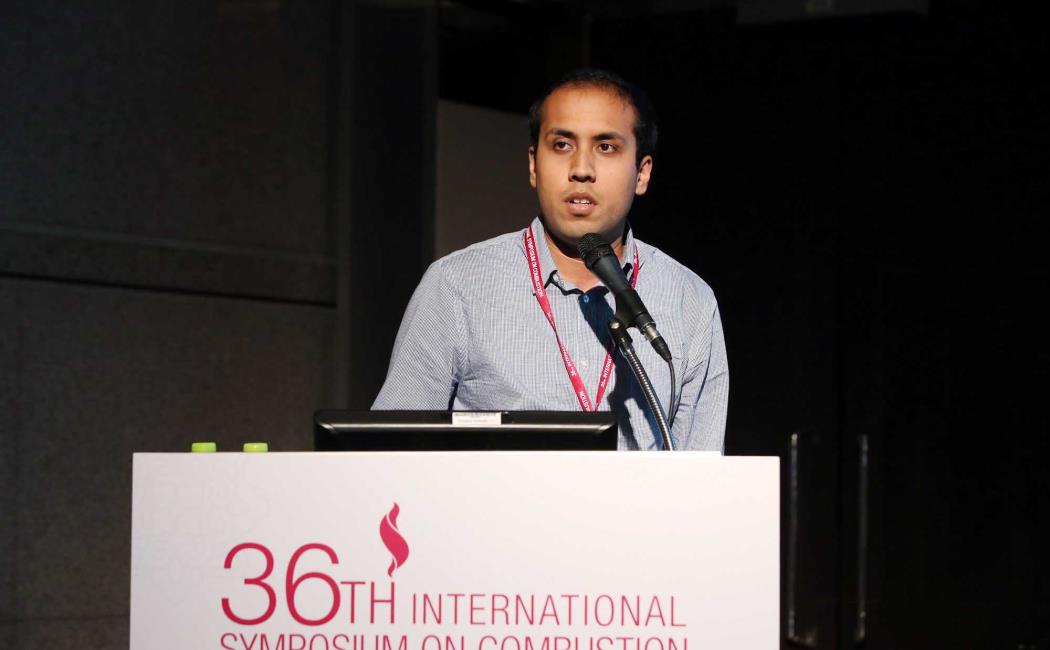

.png?sfvrsn=1b6bae1a_0) (FASTER)
(FASTER).png?sfvrsn=ac211bda_0)

10 May, 2016
Congratulations to Assistant Professor Aamir Farooq and his group who have had eight Research papers accepted for presentation and publication at the 36th International Symposium on Combustion 2016.
The Combustion Institute is an international, non-profit, educational and scientific society that serves as the premier international society for dissemination of scientific and technical research in the combustion field. The Institute interests embrace a wide field of scientific activity not covered by the activities of other scientific societies and is dedicated to the support of this important field of study that cuts across many scientific and engineering disciplines. The International Symposium on Combustion was established in 1952 as a regular biannual series, and is the major meeting of The Combustion Institute members.
Assistant Professor Aamir Farooq is Principal Investigator of the Chemical Kinetics and Laser Sensors Laboratory which focuses on the development and use of advanced experimental techniques to understand fundamental processes in traditional and renewable energy-conversion devices. The laboratory carries out experimental research on chemical kinetics using shock tubes and rapid compression machine. These idealized reactors enable the study of reaction kinetics, fuel chemistry, ignition properties, and emissions under conditions suitable for future high-efficiency, low-emission engines, and gas turbines.
Assistant Professor Farooq’s Group submitted eight research papers to the International Combustion Symposium 2016 meeting. Of the approximately 1300 total submissions, only 500 papers were accepted for presentation and publication. Compared to the overall acceptance rate of about 30%, all 8 papers were accepted (100% success rate!). This result highlights the high standard of research achieved by his group.
Six of the 8 papers are first-authored by his Ph.D. students and other two by his post-docs; the papers cover a range of important topics relevant to the development and validation of predictive combustion models for designing future high-efficiency engines.
Most of this work was carried out by applying highly sensitive laser-based sensors to measure combustion radicals and intermediates in the shock tube facility in Assistant Professor Farooq’s laboratory: